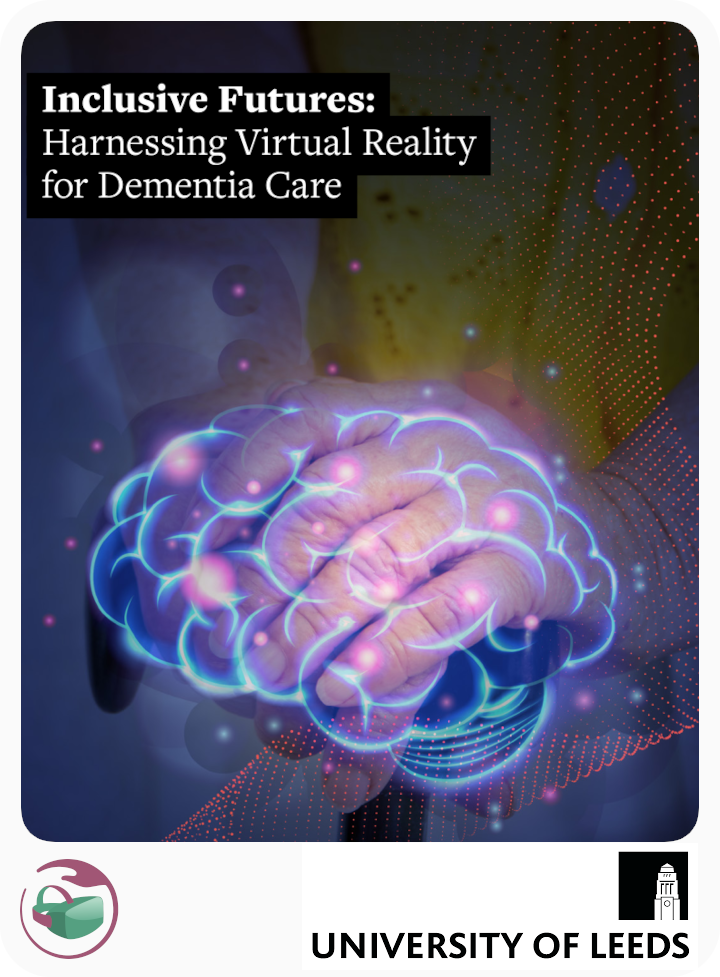Inclusive Futures: Harnessing Virtual Reality for Dementia Care
Brought together by the University of Leeds, Bradford District Care NHS Foundation Trust, Leeds Hospitals Charity, and Recreo VR, this study explored how virtual reality can be used safely and effectively to support people living with dementia. The project involved people in care homes, community groups, and inpatient wards, helping to show how immersive experiences can fit naturally into different types of care settings.
Key Findings
Safe & Comfortable: Participants used the headsets without distress, with no adverse effects recorded. Sessions were calm, easy to follow, and well-tolerated by people at varying stages of dementia.
Positive Impact on Wellbeing: VR experiences often lifted mood, encouraged relaxation, and reduced agitation. Some participants even reported relief from pain and discomfort while immersed.
Encouraging Reminiscence: Familiar places and cultural touchpoints helped unlock memories, sparking conversations with carers and family members that might not have otherwise taken place.
Inclusive and Personalised: Experiences tailored to cultural background and personal history proved especially powerful, helping people from underserved communities feel recognised and included in their care.
The study shows how VR can complement existing approaches to dementia care by creating opportunities for reminiscence, calmness, and connection. With thoughtful design and support for carers, immersive experiences can become a practical tool to improve quality of life across care homes, community services, and hospital wards.


